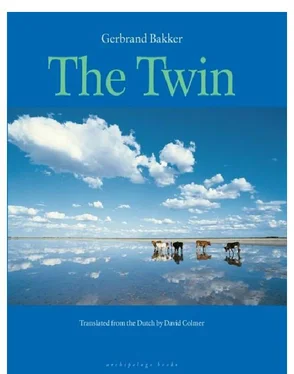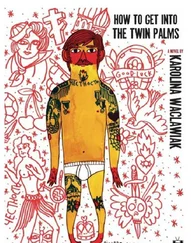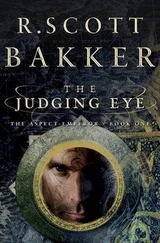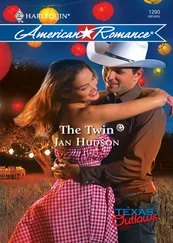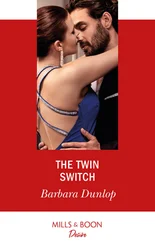He cleared his throat. I turned around. Yes, he would like some coffee — black with sugar — and yes, he wouldn’t say no to one of those almond cakes either.
Dead is dead. Gone is gone, and then I won’t even know about it. That’s why I wasn’t the only one to attend Father’s funeral. A funeral is not for the dead, it’s for those left behind. It was egotistical of Father to want to be buried on the sly. Jaap was there, Ada and the boys (not Wim, he hates death, and what’s more he had something else to do, something important) and the young tanker driver. “How did you. .” I started and Ada, who was standing behind him, formed a telephone receiver with her little finger and thumb and held it up to her ear and mouth. She shrugged apologetically, holding her head a little to one side.
“Solidarity, that’s important,” he said to Jaap.
“You’re right about that, lad,” Jaap replied, “absolutely.”
I didn’t mind, even if I was beginning to suspect the young tanker driver of making a habit of going to as many funerals as possible, which was something of an aberration. Once again there was a white sheet, hardboard by the look of it, at the bottom of a grave that actually went deeper. It didn’t last long, there weren’t any speakers. The sun was shining and the temperature was around average for late April. I threw earth in the grave. Not a handful, a shovelful. Because I like that at funerals. I don’t regard a handful of earth that blows away before it hits the coffin as any kind of conclusion. Only Ronald followed my example.
“How do you like the new driver?” Galtjo asked when we were sitting in the kitchen later. Ada had put on some coffee and I had bought marzipan castles at the baker’s in Monnickendam. All in honor of Father. There was jenever for the men. Teun and Ronald drank something with bubbles.
“She’s a bit mouthy for me,” I said.
“Yes,” he said, smiling as ever. “I’ve heard that.” His smile no longer moved me.
“Are you farmers too?” Jaap asked Teun and Ronald.
“We’re kids,” Teun corrected him.
What surprised me was the number of cards that appeared in the green letterbox on the roadside in the days after the death notice appeared in the paper. Dozens of cards. There was one from the livestock dealer, who returned from New Zealand two days after the funeral. There was even a card from Klaas van Baalen, the farmer who was the same age as me and had had his sheep removed because he neglected them. Jarno Koper’s parents sent one and so did the old tanker driver’s widow. And, of course, there were cards from all kinds of distant relatives, second and third cousins, none of whom I knew and none of whom were called Van Wonderen.
I sent a card to Riet and Henk, who obviously wouldn’t read our paper all the way down in Brabant. Riet didn’t respond at all, although it was from her that I had expected to receive a perhaps not-so-friendly card in return. If I never hear from her again, I won’t be surprised. Henk sent a postcard in reply. I already knew, he wrote on the back. And I think it’s a shame, because he was a nice man. I’m using his bike here now. I brought it with me because I couldn’t lock it up and it would have just been stolen otherwise. So I think of him now and then. Cheers, Henk. I had to smile at the card he had chosen, showing a tower of animals: a donkey, a dog, a cat and a rooster. “That’s cute,” said Ada. “They’re the Bremen town musicians. One of Grimms’ fairy tales.” The donkey in particular appeals to me. He didn’t just grab a card from the rack. I think.
Two weeks ago I turned fifty-six. In Germany. He wanted to drive over the Lake IJssel dam, I wanted to go through the new polders. Since the Opel Kadett would almost certainly have broken down halfway through Denmark, we took his car and drove over the dam. At the monument — we’d only been on the road for an hour — he pulled over. We smoked a medium-strong Van Nelle each, looking out over the Wadden Sea. Then we drove to his house — in a small village past Leeuwarden. He showed me the shed where he makes the owl boards he sells to customers from all over Friesland, without having to advertise them. “How do you think I can afford to buy my jenever?” he said, pouring two glasses. “From the pension?” He also took me out to where he’d buried the dog, in a far corner of the garden, under a gnarled pear tree that had long since lost all its blossom. He had welded two pieces of metal together to make a cross and stuck it in the ground. The turned soil was still raised. In his living room there was a large bookcase with at least twice as many books as he had had in the laborer’s cottage. He poured me another generous glass of jenever but no more for himself, because he was driving. I knocked it back: I didn’t want to be in Friesland, I wanted to go much further north.
Past Nieuweschans, just over the German border, we stopped again because he was hungry. “We’re going to eat now, Donkey Man,” he said. It was fine by me.
If you keep driving it’s easy to reach Denmark in a day, it’s not even five hundred miles. But we didn’t keep driving and stopped for the night at a Raststätte just past Hamburg. “Double room?” asked the disinterested woman behind the counter. “Of course,” he said. “It’s cheaper, isn’t it?” In the enormous bed we both lay on our backs, me with my hands clasped over my stomach. I don’t know how he was lying. When I woke up it was my birthday. I was planning on keeping it secret from him, but there was no secret to keep. He had remembered. I wanted to know how that was possible.
“For about thirteen years in a row I wasn’t invited to you and your brother’s birthday,” he said. “Do you think that’s the kind of thing you forget? I worked as usual while you two ran around with your chests puffed out and party hats on your heads. Sometimes you’d even come and stand in front of me to proudly shout, ‘It’s our birthday!’”
I don’t remember this at all. He says that’s what it was like, so that must have been what it was like.

Sometimes I forget that he knew me as a brat. Sometimes I also forget that he came to work for Father when he was a boy himself. About Henk’s age.
The boat sailed from Puttgarden and landed at Rødby. The crossing only took forty-five minutes. I drove the car off the ferry and wanted to pull over to the side of the road straightaway.
“What are you doing, Donkey Man?” he asked.
I told him that we were in Denmark and I wanted finally to feel it with my own two feet.
“There’s a lot more Denmark to come,” he said. “Down the road.”
Driving along I had a sense of having been here before, I knew almost all of the place names on the signs. We stopped to buy something to eat in a roadside restaurant outside Copenhagen and only then did we discover that we couldn’t pay with euros in Denmark. The guy at the cash register accepted them, but grudgingly, it seemed to me. Past Copenhagen (“Much too big,” he said. “Much too busy, we’ll drive on.”) I put a bank card in a cash machine for the first time in my life, typed in my PIN number, and pulled Danish kroner out of the slot. He doesn’t have a bank card; either that or he hasn’t brought it with him. I pay for everything. Since we didn’t know where we were going, we decided to keep driving until we couldn’t go any further. That was how we ended up in this village with the unpronounceable name.
Here there are rolling hills and no ditches. There are hardly any cows either, apparently they’re mostly in Jutland. With Jarno Koper. When we do see cows, they’re usually brown. “Beef,” he growls and we look the other way. There are wheat, barley and rye fields. And rapeseed: entire hilltops covered with yellow flowering rape, bordered by cow parsley. A few days ago I saw a rhododendron and a purple lilac in flower in a garden, next to a few red tulips. Everything here seems to flower at the same time.
Читать дальше
